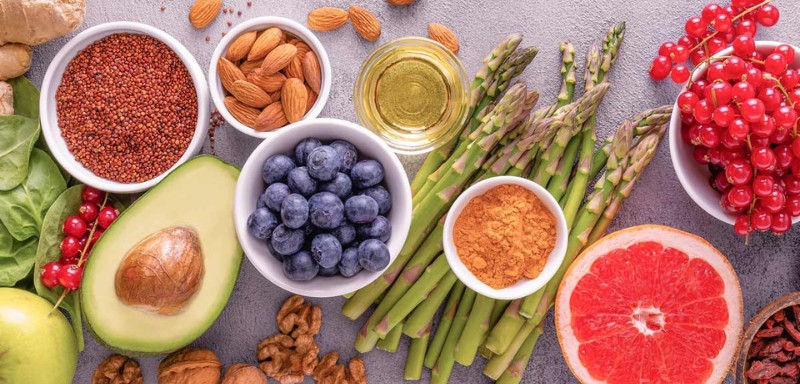A vegan diet is a plant-based diet devoid of all animal products including eggs, honey, and all dairy products. Veganism has become much more mainstream, and many people choose plant-based diets for reasons related to health, personal ethics, religion, or a combination of these factors.
Thinking of switching to a vegan diet? Let’s look at the pros and cons before deciding if a vegan diet is right for you!
Pros
I think one of the first things to establish is why you’re choosing to go vegan. That will probably help determine which benefits are most relevant to you. But regardless of whether you choose veganism for health, environmental, or ethical reasons, plant-based diets have many advantages!
1. Health Benefits
Overall, it’s really easy to load up on whole grains, legumes, fruits and veggies. A well-rounded vegan diet supplies vitamins B1, C, and E, as well as fiber, magnesium, folic acid and iron. Vegans typically consume heart-healthy foods which lowers cholesterol, blood pressure and glucose levels. Additionally, eating processed meat (hot dogs, deli meat) can make you more susceptible to colon and esophageal cancer. Vegan diets can improve your odds for avoiding those issues.
2. Possible Weight Loss
Some people choose to go on a vegan diet to lose weight. Vegan diets eliminate many foods that are high in fat and calories.
3. Better for the Environment
Many people choose to ‘go vegan’ because research has shown that veganism is more environmentally sustainable. Some studies have shown that producing 1kg of protein requires 100 times more water than producing 1kg of grain protein.
4. No Animals Are Harmed
Another popular reason people choose vegan diets is because no animals are harmed or killed to produce vegan-friendly foods. Some vegans will even avoid clothing or other products that are made from animals, poultry, fish or bees.
Cons
A vegan diet can be a great benefit for your body and the environment, but it has some drawbacks.
1. Limited Food Choices
Veganism is the most restrictive of plant-based diets. If you currently eat a standard American diet, you will be making some major changes in your day-to-day meals. For some people, it can be really challenging to stick to parameters a vegan diet calls for.
2. Possible Nutritional Deficiencies
Vegan diets have health benefits, but there are potential nutritional deficiencies. For example, vegan diets have been shown to lack calcium which is required for bone formation, muscle contraction, and other essential functions in the body. Vitamin B-12 is needed for healthy nerve function and blood cell production and can lead to a deficiency called pernicious anemia.
Naturally, in a diet that does not allow meat, protein can be another issue. However, many vegans will find alternative protein sources in plants such as dried peas, kidney beans, chickpeas, fava beans and adzuki beans, to name a few.
Some vegans will also take supplements in addition to these protein alternatives, it just depends on the person and how their body reacts to the diet. Everyone is different!
3. Requires Discipline
Plant-based diets require diligence and shopping for vegan-friendly food is more difficult than a standard diet. Reading nutrition labels and ingredient lists will become part of the routine when shopping and making foods. Animal by-products like gelatin, whey, casein, and honey are not compliant with a vegan diet and are found in many foods, especially of the processed variety.
4. It’s harder to eat at restaurants
Vegan restaurants are on the rise, but they aren’t found everywhere. It can be more difficult to find restaurants that will cater to plant-based diets. Some non-vegan restaurants will note they have vegan or vegetarian foods on their menu. However, even some of the plant-based foods will have animal by-products. For example, vegetable soup can be made with a broth that used animal bone for flavoring.
5. Weight Gain
Weight gain is one reason why a vegan diet is bad for some people. Switching to a plant-based diet after eating too much processed food, which is high in fat and calories, can leave you feeling hungry and trigger a desire to binge. In this case, it’s recommended to eat whole grains, and lean proteins to help you feel fuller longer.
So, what’s the conclusion?
With research and planning, a vegan diet can enhance your overall health, but there are always a few things to consider. After weighing the pros and cons, give it a try, and you might find a vegan diet is right for you!

